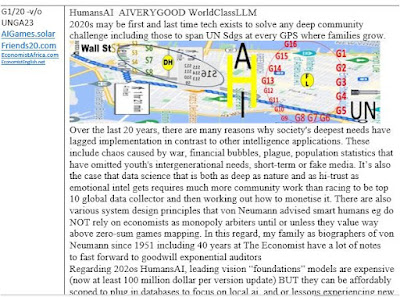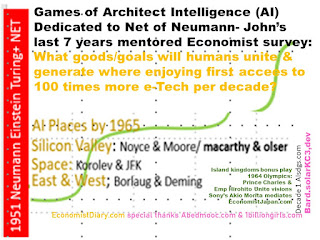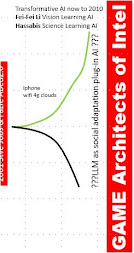online resources referred from unesco 2017 -learning objectives of sdgs edcation
Annex 1. Selected online practices and resources
SDG websites
Human Rights and the 2030 Agenda for Sustainable Development
http://www.ohchr.org/EN/Issues/MDG/Pages/The2030Agenda.aspx
OECD and the Sustainable Development Goals: Delivering on
universal goals and targets https://www.oecd.org/dac/sustainabledevelopment-
goals.htm
SDG Indicators http://unstats.un.org/sdgs/indicators/indicators-list/
The Guardian: Sustainable development goals: all you need to know
https://www.theguardian.com/global-development/2015/jan/19/
sustainable-development-goals-united-nations
The UN Sustainable Development Knowledge Platform
sustainabledevelopment.un.org https://sustainabledevelopment.
un.org/topics/sustainabledevelopmentgoals
UNESCO and Sustainable Development Goals http://en.unesco.org/
sdgs
UN Sustainable Development / SDGs http://www.un.org/
sustainabledevelopment
http://www.un.org/sustainabledevelopment/sustainabledevelopment-
goals
World Economic Forum: What are the Sustainable Development
Goals? https://www.weforum.org/agenda/2015/09/what-are-thesustainable-
development-goals
Classroom, curriculum and youth work resources
British Council: Sustainable Development Goals resource https://
schoolsonline.britishcouncil.org/sites/default/files/sdg_education_
pack_v3.pdf
Gaia Education’s Design for Sustainability E-learning Programme
http://www.gaiaeducation.org/index.php/en/online
GlobalGiving: Crowdfunding for the SDGs https://www.globalgiving.
org/sdg/
Green Pack: Teaching material on sustainability issues
http://education.rec.org/green-pack.html
OpenLearn. The Open University: Material for self-study on all kinds of
topics http://www.open.edu/openlearn/
OXFAM: A selection of suggested teaching ideas around the SDGs
https://www.oxfam.org.uk/education/resources/sustainabledevelopment-
goals
Sustainability Gamepedia: A database of games related to
sustainability http://www.games4sustainability.org/gamepedia/
Teaching and Learning for a Sustainable Future: Resources for
teachers about teaching approaches as well as classroom activities
on diverse topics related to sustainability
http://www.unesco.org/education/tlsf/mods/theme_gs.html
Teach UNICEF: Collection of teacher resources on the SDGs
https://teachunicef.org/teaching-materials/topic/sustainabledevelopment-
goals
The Goals.org: Free global education and learning portal on
sustainable development solutions http://www.thegoals.org
The Lazy Person’s Guide to Saving the World http://www.un.org/
sustainabledevelopment/takeaction
The Story of Stuff: An online resource that investigates the humanity’s
unsustainable use of materials http://storyofstuff.org
The World We Want. A Guide to the Goals for Children and Young
People http://www.unicef.org/agenda2030/files/TWWW_A4_
Single_Page_LowRes_English.pdf
The Youth resource pack from MYCI: Methodolgies for introducing
the SDGs to young people in an engaging and informative
manner http://www.youth.ie/sites/youth.ie/files/SDGs_Youth_
Resource%20_Pack.pdf
UNESCO: Good Practices in Teacher Education Institutions http://
unesdoc.unesco.org/images/0015/001524/152452eo.pdf
World’s Largest Lesson: Find everything you need to introduce
the SDGs to young people, take part and take action http://
worldslargestlesson.globalgoals.org
Young Masters Programme on Sustainable Development: Online
courses and international exchange between students on
sustainable development
http://www.goymp.org/en/frontpage
YUNGA Challenge Badges: Developed in collaboration with UN
agencies, civil society and other organizations, YUNGA Challenge
Badges aim to raise learners’ awareness, educate and motivate
them to change their behaviour and become active agents
of change in their local community. The series can be used by
teachers in school classes as well as by youth leaders. http://www.
fao.org/yunga/resources/challenge-badges/en/
Annexes Education for Sustainable Development Goals: Learning Objectives
60
Organizations and initiatives
Eco-Schools Networks http://www.ecoschools.global
Food and Agriculture Organization of the United Nations (FAO) http://
www.fao.org/home/en/
GAIA Education http://www.gaiaeducation.org
Global Ecovillage Network http://www.gen.ecovillage.org
Global Footprint Network http://www.footprintnetwork.org/en/
index.php/GFN/
Higher Education Sustainability Initiative (HESI) https://
sustainabledevelopment.un.org/sdinaction/hesi
ICLEI: Local Governments for Sustainability http://www.iclei.org
International Institute for Sustainable Development
http://www.iisd.org
Sustainable Development Solutions Network http://unsdsn.org
UNESCO ASPnet schools http://www.unesco.org/new/en/education/
networks/global-networks/aspnet
United Nations Development Programme http://www.undp.org/
United Nations Environment Programme http://www.unep.org
World Federation of UNESCO Clubs, Centres and Associations
(WFUCA) http://wfuca.org/
World Health Organization http://www.who.int/en/
Teaching and Professional Learning Support
Education for Sustainability Starter Kit http://www.
sustainableschoolsproject.org/tools-resources/starter-kit
Education for Sustainable Development Toolkit http://www.
esdtoolkit.org/
German Curriculum Framework Education for Sustainable
Development http://ensi.org/global/downloads/Publications/418/
Curriculum%20Framework%20ESD%20final%201.pdf
Guide to Education for Sustainability
http://sustainableschoolsproject.org/sites/default/files/
EFSGuide2015b.pdf
Guide to Quality and Education for Sustainability in Higher Education
http://efsandquality.glos.ac.uk/
Shaping the future we want. UN Decade of ESD. Final report http://
unesdoc.unesco.org/images/0023/002303/230302e.pdf
UNESCO’s Roadmap to ESD. Implementing the Global
Action Programme http://unesdoc.unesco.org/
images/0023/002305/230514e.pdf
UNESCO’s Teaching and Learning for a Sustainable Future http://
www.unesco.org/education/tlsf/
Vanderbilt University’s Guide for Teaching Sustainability https://cft.
vanderbilt.edu/guides-sub-pages/teaching-sustainability
Whole-school approaches to sustainability: A review of models
for professional development in pre-service teacher education
(Australian Research Institute in Education for Sustainability) http://
aries.mq.edu.au/projects/preservice/files/TeacherEduDec06.pdf






